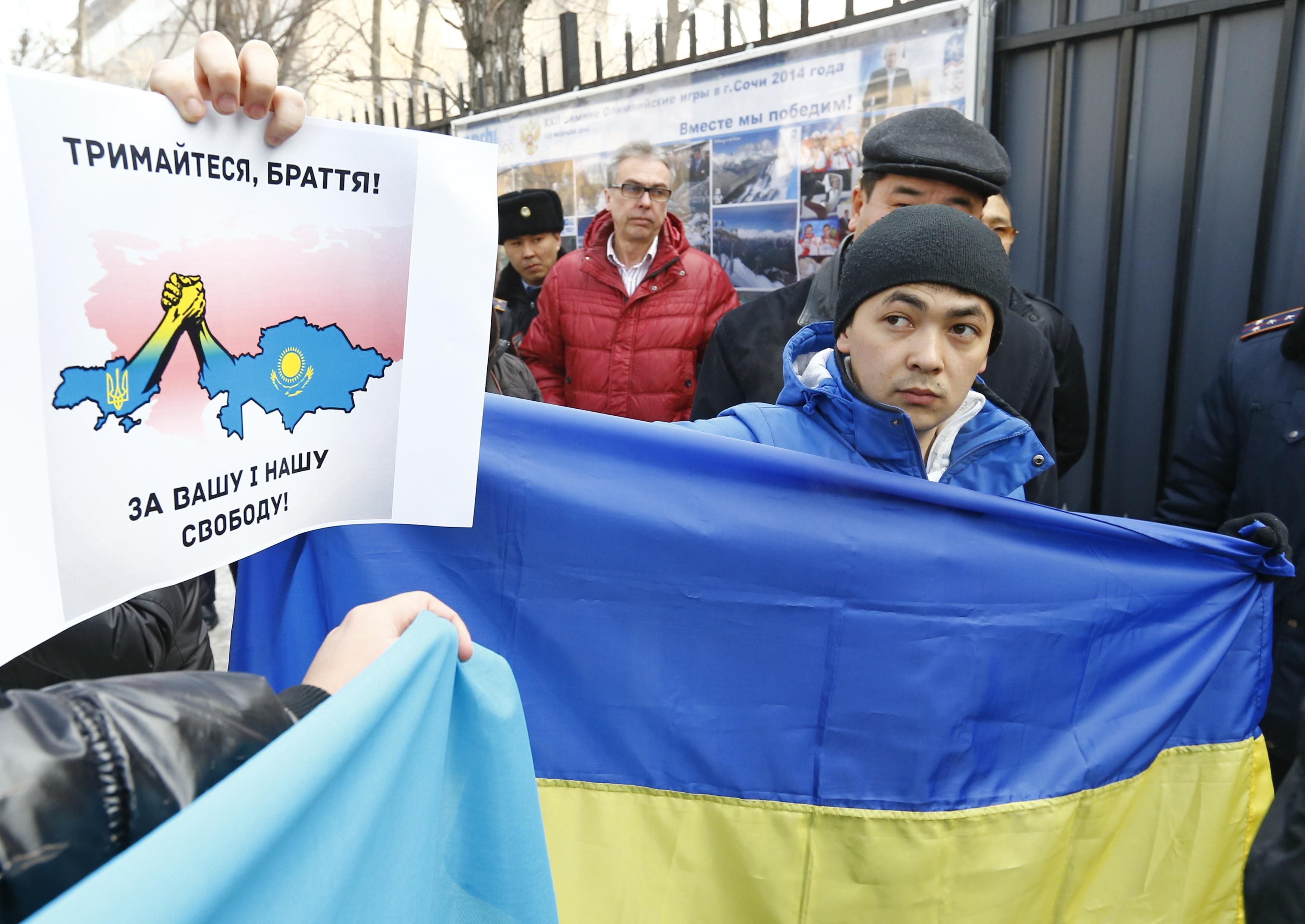The impact of Russia’s invasion of Ukraine has echoed around the world, but spare a thought for the five former Soviet republics of Central Asia. All have close economic and cultural ties to Russia, but they also have reasons to be wary of what Vladimir Putin has done in Ukraine.
For one thing, Western sanctions meant to cripple the Kremlin war machine could cause serious collateral damage in the region. Over the past several decades, millions of people from Central Asia have migrated to Russia in search of work. The most famous one outside of Russia was probably this guy.
Today, the money they send home keeps the region’s smaller economies afloat. Kyrgyzstan and Tajikistan, two of the poorest countries in Asia, rely on remittances for between a quarter and a third of their economies overall. Most of that comes from Russia.
But now, with sanctions projected to shrink the Russian economy by as much as 7% this year, millions of those people could be out of work. The World Bank already says remittances to Kyrgyzstan and Tajikistan alone will fall by up to 30% this year.
What’s more, says Erica Marat, a regional specialist at the National Defense University, there is a real fear of what could happen if large numbers of migrants or second generation citizens of Russia decide to come home looking for work. The official unemployment rate in Tajikistan, for example, is already at 7%.
“We’ve never seen such a large population returning home,” Marat says, “and everyone sort of hopes it won’t happen because it would destabilize a lot of things. It’s just a huge wild card.”
At the same time, Russia’s invasion sets a scary precedent. The sight of Putin invading a neighboring country under the pretext of protecting ethnic Russians raises some uncomfortable questions for the Central Asian countries, all of which, like Ukraine, have sizable ethnic Russian minorities of their own.
That’s especially true in Kazakhstan, where Russians make up some 30% of the population, and are heavily concentrated in northern regions that border Russia. Prominent Russian officials have in the past questioned whether Kazakhstan is even a real country at all — an echo of Putin’s views on Ukraine.
Within the region, everyone is treading carefully, but some more so than others. No one has openly criticized Putin, of course. And Kyrgyzstan and Tajikistan – both of which also depend on Russian troops for security — have kept particularly mum.
But energy-rich Kazakhstan and Uzbekistan, the region’s top two economies, have sailed a little closer to the wind, declaring support for Ukraine’s territorial integrity and sending aid to the country directly.
Kazakhstan, for its part, even refused a Russian request to send troops to Ukraine — a striking move for President Kassym-Jomart Tokayev, whom Russia saved from a popular uprising just months ago.
In part, says Marat, that could be because Tokayev wants to demonstrate, however carefully, that he is not in fact totally beholden to Moscow. Kazakhstan has always prided itself on having a “multi-vector” foreign policy — carefully balancing its ties with Russia, China, and the West. It may also be a shrewder play to attract Western businesses that are fleeing Russia but wish to stay in the region.
Overall, the Central Asian states are in a kind of limbo — waiting to see how bad the economic fallout in Russia is, and how far Putin really tries to go in Ukraine. Everyone understands that they are now living with a new and more internationally isolated Russia, says Marat, but it’s a Russia that they are still tied to in many ways.
The prevailing mindset right now, she says, is an anxiously pragmatic one: “How do we live?”
More For You
Ian Bremmer sits down with former US Ambassador to NATO Ivo Daalder to unpack a historic shift in the transatlantic alliance: Europe is preparing to defend itself without its American safety net.
Most Popular
Think you know what's going on around the world? Here's your chance to prove it.
Argentina, Armenia, Belarus, Egypt, Indonesia, Jordan, Pakistan, Paraguay, Vietnam – to name only a few.
A poster featuring Andrew Mountbatten-Windsor, formerly known as Prince Andrew, is installed on a sign leading to the parking area of the Sandringham Estate in Wolferton, as pressure builds on him to give evidence after the U.S. Justice Department released more records tied to the late financier and convicted sex offender Jeffrey Epstein, in Norfolk, Britain, February 5, 2026.
British police arrested former Prince Andrew Mountbatten-Windsor today over allegations that in 2010, when he was a UK trade envoy, he shared confidential government documents with convicted sex offender Jeffrey Epstein.
